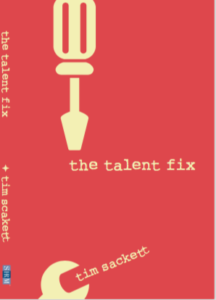I spoke at SHRM National yesterday. I have to say I love the SHRMies! I never feel out of place at a SHRM conference. The pros that come are like most of us. We are trying to get better. We aren’t perfect. We really want to do great work. We have challenges.
There is one thing, though, I can point to that seems to separate those SHRM HR pros who are moving quickly into modern HR, and those who are not.
It really can be boiled down to Compliance vs. Contribution.
Everyone in HR is concerned about compliance. It’s part of the gig. Those who ignore compliance do not have a long career in HR.
Compliance-focused HR is also a trap.
I’ve said this my entire career, that it’s not HR’s job to eliminate risk. It is HR’s job to mitigate and advise of risk.
Bad HR tries to eliminate risk, so much so, that it many times turns into threats. The treats sound like this:
“Jim, you can’t do that because we’ll get sued!”
“Mary, you can’t ask your team to do that because it’s against policy!”
“Pat, if you decide to take this direction we’ll have to get legal involved!”
This is HR trying to eliminate risk. This is bad HR.
Here’s how HR contributes to the success of an organization while mitigating and advising of risk:
“Jim, I understand what it is you want to do. There’s some risk, let’s be clear about this. If ‘we’ go this direction, we have to be prepared for “X”. Knowing this, how do you want to move forward?”
“Mary, I definitely hear what you need from your team. There are some complications because we have some policies in place. It doesn’t mean we can break or change those policies but puts us at some risk in the future. How about instead we try this…”
“Pat, I’m a little uncomfortable going the route you want to take. I think it would be best for ‘us’ to get some insight from legal and see if they might have a less risky way for us to proceed.”
Compliance vs. Contribution is really just a change in language and communication. One will get most of your team to want to work with you and keep you in the loop. The other will shut off your team from wanting to interact with you, and actually increasing the likelihood they get themselves and the organization in trouble.
I love my SHRMies who are looking to contribute. I desperately want to turn on a light for my SHRM brothers and sisters who are so compliance focused they are missing a great opportunity to contribute the greater good of the organization!
Never stop trying to raise the profession.
The Talent Fix – My new SHRM Produced book is now available to purchase! If your organization is having trouble hiring, this is a must buy!
Talent Fix Review: My mom says it’s her favorite book that I’ve written!!! (I’ve only written one book!)




